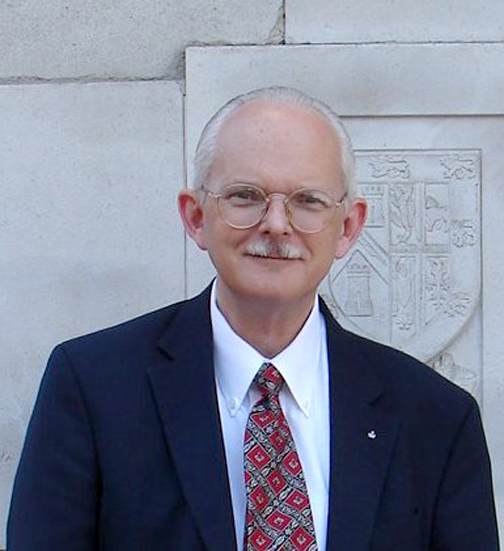QUESTION: Although our daughter and son-in-law are great parents, the family doesn’t go to church. Our grandchildren are now 5 and 9, and both are doing well in school. We’ve mentioned church to them but haven’t made an issue of it. We’d like to see these little ones learn about the spiritual side of life.
Is there a gentle way to approach this without causing hard feelings? Both my daughter and son-in-law were raised going to church with their families, so we don’t understand how this could be happening.
~ Dismayed Grandparents
Dear Dismayed Grandparents,
So many of the Spiritual Speaking letters that come across my desk have a common theme, that being our human need to get people to do what we think is right for them. We do this, and I say “We” because this has been a lesson that I have been learning and continue to learn my entire adult life, I believe, out of love and fear. We love our people so much and we really think we know what is best for them. And fear because if they don’t take our suggestions and recommendations then maybe life will be harder than it needs to be. Maybe we could help them bypass some of the struggle and pain we have experienced in our lifetimes. If only they could learn from our mistakes and our successes.
Here is what I have come to understand: We are all on our journey.
Period. Our children, our grandchildren, our families, friends, people we like, people we don’t like. Everyone. Our job isn’t to nudge them onto the path we think they should be on; our job is to love them as they struggle to find their own.
Perhaps you can ask your daughter and son-in-law if you can take your grandchildren to your church on Sunday. If they say yes, fantastic! You get to share something that is meaningful and important to you with your grandchildren. If they say no, then the conversation is over ¬– but the story isn’t over. Being available to your grandchildren when they have questions about the spiritual life will be your gift to them. Not pressuring anyone to do what you think is the right thing will be your gift to yourselves.
Rev. Holly Cardone
hollycardone1@gmail.com
Dear Dismayed Grandparents,
It appears you have already addressed this issue with the parents. It is not clear from your letter if your approach was either lightly or not so well received. In any event, the best solution is to talk this out with them. It may be the case their experience with a church was not as positive as both they and you would have liked. It may be the case that their less-than-positive experience with going to church is something they have decided not to expose their children to.
Whatever the issue, it will come out in a friendly, non-judgmental, non-condemning, accepting and respectful dialog. The key to all this is to keep your own anger, fears or desires in check (even if the parents can’t) in order to keep it an open and respectful dialog with a positive outcome.
The second point is to accept and respect what they choose. If they see your point and agree with you, that is wonderful. If not, you have done your best.
Accept and respect their wishes. It is up to them as to what kind of spiritual education (if any) the children will receive. In that event, your choice could be to serve as the good and positive examples in your grandchildren’s lives of what a meaningful spiritual life is like, or should be.
Addressing a concern that you did not mention, but which I see often in people who front similar situations as you are, we often think if someone is not exposed to the “Word,” especially at a young age, that somehow they risk being lost or spiritually abandoned or condemned. No one wants that, especially for someone they love so dearly, like a grandchild.
The comfort is, and many churches fail to realize this, is that God abandons and condemns no one. That is inconsistent with a God of love. When it comes to God, the poet Bogumil once said, “That no creature is so vile that it is not loved. No sin is so great, that it is not forgiven.” This, in essence, is the great message of Jesus. God’s love, grace and forgiveness is always given, and ever-ready to bless each of us, whether we choose to accept it or not.
Ernest Holmes, founder of the Science of Mind, added to this that God does not play favorites. He loves and treasures each of us the same. No one gets the short stick. The spiritual lives of your grandchildren is ultimately in God’s hands, and God makes no mistakes.
Once, I spoke with a young lady who, prior to our conversation, led what many in the religious community would see (from the outside) as a godless or spiritually empty and spiritually dangerous life. In discussing prayer, I mentioned to her that people pray from that spot within themselves where they feel most close and connected to God. Jesus called it the closet of your mind. She exclaimed, much to my surprise, “Yes, yes! I know exactly what you mean.”
We often only see the surface of life, the surface of other people’s lives. It is much like viewing the surface of a river. What we cannot always see are the strong spiritual undercurrents at work below our view. Each of has our own unique spiritual journey that often unfolds in unexpected and unanticipated ways. The comfort is your grandchildren will never walk alone on this journey, and, in spite of its ups and downs, will never be rejected, abandoned or condemned by our Heavenly Father ¬– even if they don’t make it into church as a child.
Anthony Kelson, RScP
anthony@apkelson.com
QUESTION: We’re a couple of women in our mid-80s and have experienced five of our friends passing away since last fall. Out of the five, the families of three of them decided not to have funerals or memorial services. These were very good friends from our various community activities. The families told us that this is what the deceased wanted.
Would you please say something that, in addition to honoring the one who has passed on, many would like to have completion in attending a service and reminiscing about the relationships that were had? We believe these services are just as much for the survivors as the ones who are no longer with us. We would like to see the mindset of, “I don’t want a funeral/memorial service” addressed in a way that will help individuals make final arrangements that includes longtime friends.
~ Bereaved Friends
Dear Bereaved Friends,
First, my condolences on your losses. That’s quite a stretch of loss. Second, I’d like to ask a sensitive question. I’m wondering if between the lines in your letter there is some doubt in your mind about whether or not the deceased really didn’t want a service. Do you wonder if the relatives are being truthful?
While being a healing and healthy thing to do, a funeral or memorial service requires planning, effort and money. Not all families agree on whether or not a service is worth it. As far as I’m concerned, the deceased is always worth the effort involved in planning some kind of farewell service. A funeral or memorial service is about the deceased but for the survivors. We need a chance to say goodbye. We need the reminder that we are part of something greater than ourselves. And we always learn things we didn’t know when we get together to remember and say goodbye.
Here’s something else to consider. As life in these United States becomes increasingly secular, more and more people feel less and less comfortable reflecting on issues like life and death, God and eternity and loss and redemption. That’s the wonderful thing about death. It forces us to get real with time, our time that’s left here in the land of the living. Nevertheless, many would prefer not to even think about it.
I can think of only one way to guarantee a service for those who precede us in death: some kind of witnessed or written statement in advance, like a living will or something else official. These decisions are generally made by families and not friends. A dear friend has little recourse if the family says that the deceased didn’t want a service. In truth, I suspect this problem will only get worse and worse. But I appreciate the way Billy Graham planned ahead. Every aspect of his memorial service was exactly how he wanted it. We got to know him a little better by seeing what he wanted his goodbye to look like. I wish everybody would do that. In addition, I personally recommend something helpful called “Five Wishes” put out by www.agingwithdignity.org. This simple booklet spells out specifics regarding the end of life and, when properly signed and distributed, becomes a legal document.
I’ll close with an extremely relevant Scripture verse on the subject: “Better to spend your time at funerals than at parties. After all, everyone dies – so the living should take this to heart” Eccl.7:2.
Rev. Jon T. Karn
www.lightonthecorner.org
Dear Bereaved Friends,
I’m sorry to learn of your many losses in such a brief period of time. I hope you’re engaging in some self-care and reminiscing about the happy times with your friends. Remembering the joy you shared with your loved ones is a lovely tribute to their lives and legacies.
Most of us, in this day and age of instant gratification and technology, are ill-prepared for dealing with loss. There are conflicting emotions that leave us spent. We don’t know where to begin with managing our own feelings, let alone the emotional content of others. We don’t know how to assist one another in expressing grief in a healthy way, which often leads to hurt feelings.
As we struggle with our thoughts, we feel alone and conflicted and don’t know how to reach out to others. We do things like try to replace the loss, let time pass, keep busy and grieve alone. We know that others don’t really know what to say, so we retreat. Some of us are so uncomfortable with death that we simply refuse to discuss the matter and try to get on with life.
Sometimes there are wishes to be respected, and services and receptions can be daunting when it comes to the financial burden. Something is missing, however, when we don’t take the time to remember the lost loved one in some fashion or prevent others from showing their own sadness as happens with offering condolences.
Galatians 6:2 reminds us to carry each other’s burdens, but sometimes it’s difficult for the grieving family to share their pain when we, their friends and relatives, would gladly offer support and compassion. Even Jesus was deeply moved when He saw Mary weeping over Lazarus (John 11:33).
Now, here’s the difficult part for those of us who feel resentful for not being afforded the opportunity to show an expression of our grief. We are challenged to honor the decisions of the family, regardless of how we feel. Fortunately, you have each other to reminisce and fondly recall the lives of your friends and the commitment to honor the memory of your lost loved ones. We know that there’s a time and a season for every purpose (Ecclesiastes 3:1-8).
You might consider hosting a gathering to honor your friends. Something simple. Maybe even invite the families to share your memories. You may become the healing catalyst, both for yourselves and others.
Blessings for your tender hearts of compassion!

Lucinda Guarino
lguarino@ymcafoothills.org



